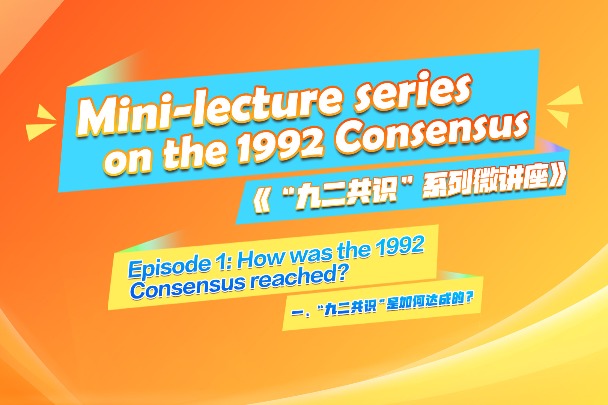Chinese New Year seminar for Taiwan businesspeople held in Beijing

BEIJING -- A seminar was held Sunday by the Taiwan Work Office of the Communist Party of China (CPC) Central Committee and the Taiwan Affairs Office of the State Council, gathering more than 50 businesspeople representatives from Taiwan at the start of the Chinese New Year.
At the event, Song Tao, head of both the Taiwan Work Office of the CPC Central Committee and the Taiwan Affairs Office of the State Council, expressed festival greetings to all the Taiwan businesspeople.
Efforts should be made to thoroughly implement the guiding principles of the 20th CPC National Congress as well as the CPC's overall policy for resolving the Taiwan question in the new era, and uphold the policies of peaceful reunification and "one country, two systems," said Song.
Song pledged further efforts to help Taiwan businesspeople and enterprises integrate into the mainland's new development pattern and participate in high-quality development, to advance exchanges and cooperation in various sectors across the Taiwan Straits, and to facilitate people's cross-Straits travels.
As long as the Taiwan authorities can recognize the 1992 Consensus, which embodies the one-China principle, cross-Straits consultations and negotiations will resume, said Song.
He also called on Taiwan compatriots and businesspeople to actively promote cross-Straits exchanges and cooperation, resolutely oppose separatist activities aimed at "Taiwan independence" and interference by external forces, and promote peaceful development of cross-Straits relations and advance the process of China's peaceful reunification.
Noting the immense development potential and bright prospects on the mainland, Lee Cheng-hung, chairman of the Association of Taiwan Investment Enterprises on the Mainland, said Taiwan businesspeople are full of confidence in their development here.
At the seminar, Taiwan businesspeople based in places such as Guangxi, Sichuan, Zhejiang and Shanghai also expressed their views on promoting the cause of national reunification, chasing dreams on the mainland, contributing to Chinese modernization and deepening cultural and people-to-people exchanges across the Straits.




